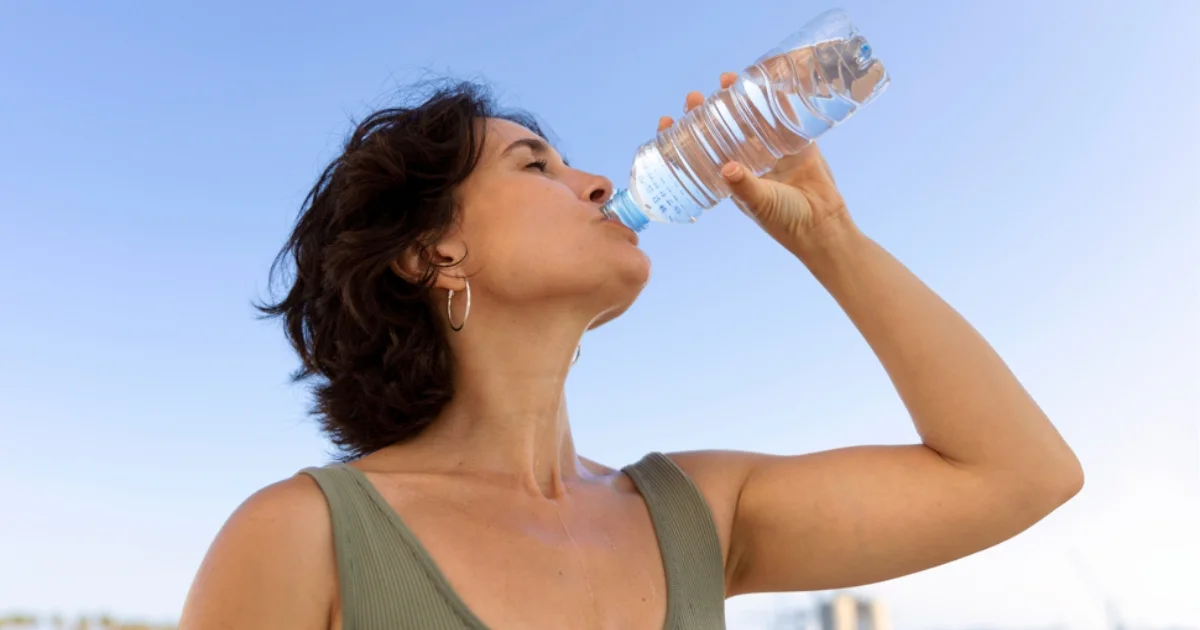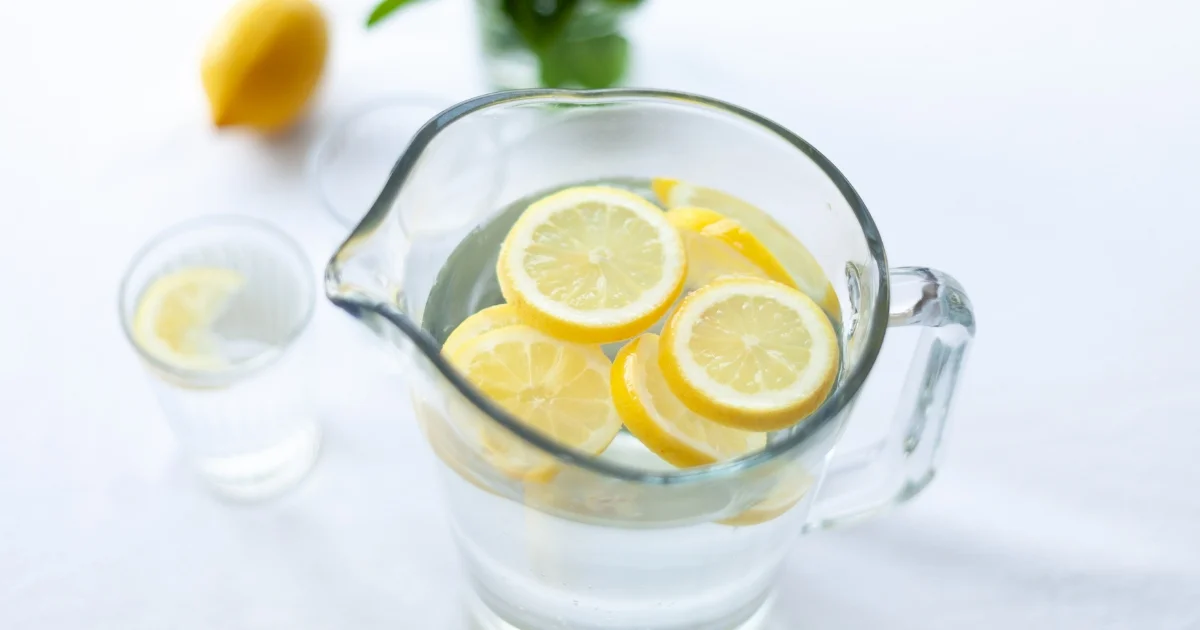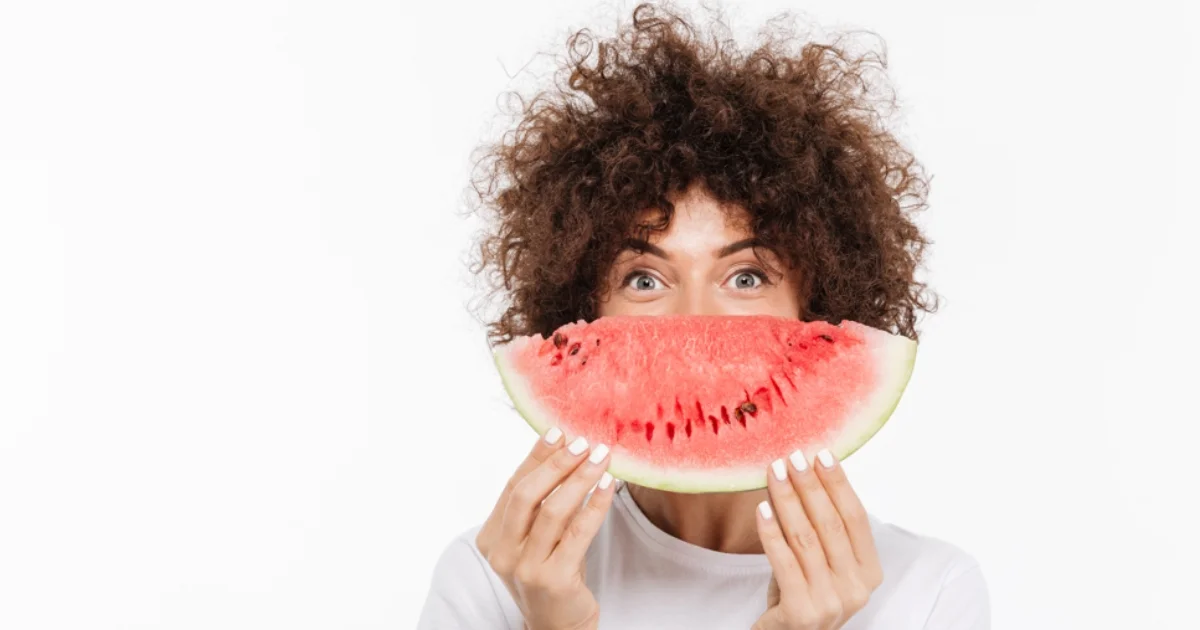Blog
The Importance of Hydration: Making Water a Daily Habit

Ever notice how a houseplant visibly perks up after receiving proper hydration? While humans don’t wilt like leaves, our bodies reveal more subtle signs when fluid levels decline. The truth is most of us aren’t drinking enough water throughout the day to fully enjoy the benefits of drinking water daily.
Across Canada, a surprising number of people are walking around mildly dehydrated without realizing it. And this quiet kind of thirst can take a toll—on your concentration, your energy, your digestion, and even your joints.
Dehydration is a commonly overlooked health issue that can gradually impact overall well-being.
In this article, we’ll explore why hydration is so essential, how your body signals that it’s running low, and how to establish a hydration habit—even if your water bottle tends to stay full until bedtime.
Why Your Body Can't Function Without Proper Hydration
Water isn’t just for quenching thirst—it’s something your body relies on constantly. It regulates temperature, cushions joints, moves nutrients, and helps remove waste. Even slight dehydration—a small drop in fluid levels—can leave you feeling off, with symptoms like fatigue, brain fog, or a lingering low-grade headache.
Your brain is especially sensitive to hydration. That classic afternoon slump that sends you reaching for another cup of coffee? It might be your brain quietly asking for water. While your overall body is roughly 60% water, your brain is closer to 75%. You're not just staying alive with water—you’re thinking with it, too.
Your joints are also significantly impacted. The soft cartilage between your bones is composed of approximately 80% water. So, when you're low on fluids, that cushioning gets thinner, and your joints may feel stiffer or more uncomfortable than usual. Individuals with mild joint discomfort may experience noticeable relief by increasing their fluid intake.
Then there’s digestion. Water plays a key role in helping your body break down food and absorb nutrients effectively. In fact, being even slightly dehydrated is one of the most common contributors to constipation. Before turning to medication or supplements, increasing your water intake is often a simple yet effective first step.
How to Tell If You're Not Drinking Enough Water
Feeling thirsty is the most obvious sign that your body needs water—but it often arrives too late. By the time thirst kicks in, you’re already mildly dehydrated. The most effective strategy is to maintain consistent water intake throughout the day.
The color of your urine provides one of the most reliable indicators. When you're adequately hydrated, your urine should be pale yellow—similar to light lemonade. If it’s dark yellow or amber, you need to drink more. If it’s completely clear, you may be overhydrating.
Frequent headaches—particularly in the afternoon—are another common indicator of dehydration. Before reaching for pain relievers, consider drinking a full glass of water and waiting a few minutes. You may be surprised by how frequently proper hydration alleviates discomfort.
Common Signs of Dehydration:
Dark yellow urine
Afternoon headaches
Dry lips or skin
Feeling tired or dizzy
Muscle cramps
Bad breath or dry mouth
Learning to recognize these signals early makes it easier to stay ahead of dehydration before it begins to interfere with your daily life.
How Much Water Should You Actually Drink Each Day?
We’ve all heard the old “eight glasses a day” rule—but the truth is, hydration isn’t one-size-fits-all. How much water you need depends on your body size, how active you are, what the weather’s like, and even what medications you’re taking.
Health experts suggest about 11 cups daily for women and 15 cups for men. This includes all fluids plus water-rich foods, which give us about 20% of our daily water intake. Individuals who exercise regularly have increased hydration requirements.
A good rule of thumb is to add an extra cup of water for every 15 to 20 minutes of physical activity. Those exercising in summer heat will require increased fluid intake due to elevated perspiration levels. The key is to drink before you feel thirsty— as thirst often indicates you're already mildly dehydrated.
Weather affects your water needs too. Hot, humid days increase water loss through sweat, while cold, dry air causes water loss through breathing. Most people need about 15-20% more water during extreme weather conditions.
Some medications increase fluid loss, including diuretics, certain antidepressants, allergy meds, and blood pressure prescriptions. If you're on any of these, you may need extra water. We’re happy to help you review your medications and how they might affect your hydration needs.

Daily Hydration Habits That Work
These daily hydration tips for busy people are simple, flexible, and designed to fit real-life routines:
Start your day with water—before coffee, before breakfast, even before checking your phone. After 7 to 8 hours of sleep, your body wakes up dehydrated. Reaching for water first thing helps reset your system and sets a healthy tone for the rest of the day.
Keep your water where you can see it. People drink about a cup and a half more per day just by keeping water nearby and in sight. Consider using a reusable water bottle with time markers or measurement lines—seeing your progress makes it easier to stay on track.
Link water to habits you already have. Drink a few sips after each bathroom break, before every meal, or whenever you pick up your phone. These small triggers help turn drinking water into a background habit.
Enhance the flavor if necessary. If plain water isn’t appealing, consider adding fresh fruit, cucumber slices, mint, or a splash of juice. Many people find cold water more refreshing than room temperature—and if bubbles help you stay interested, go ahead and choose sparkling. These practical strategies are especially helpful during busy periods and can make daily hydration more attainable and sustainable.
If you’ve tried all these tips before but still struggle. Consider setting smaller, incremental goals to begin with. Instead of jumping to eight glasses, start with adding just one extra glass of water per day. Once that feels normal, add another. Small wins build confidence and make bigger changes possible.
Other Ways Your Body Gets Hydrated Beyond Water

Good news: staying hydrated isn’t just about drinking water. Your body also gets fluids from the foods and drinks you have throughout the day—even things you might not think “count.”
Fruits and vegetables with high water content—like watermelon, cucumber, strawberries, and lettuce—do more than feed you. They also provide water while giving you fiber, vitamins, and minerals.
Soups, broths, and herbal teas count toward your daily fluids too. In colder weather, these warm options feel better when drinking cold water doesn't appeal.
Milk and plant-based alternatives offer hydration along with nutrients like calcium, vitamin D, and protein. In fact, milk may even hydrate better than water in some situations thanks to its protein and electrolytes.
Coffee and tea also help with your daily fluid intake, even though they're mild diuretics (making you urinate more). In normal amounts, the water they provide is more than the water you lose. So yes—your morning coffee does count.
Sports drinks have their place but aren't needed for most regular activities. Unless you're exercising for more than an hour, plain water works well without the added sugars and calories. Many sports drinks contain sugar levels comparable to soft drinks, making them less ideal for daily use.
A common misconception is that staying hydrated requires costly electrolyte beverages. For most people doing regular activities, plain water is perfect. If you're concerned about electrolytes, foods like bananas, yogurt, and nuts provide them naturally without the added cost or sugar.
Special Situations That Change Your Daily Water Needs
Older adults have a higher risk of dehydration. As we age, we feel less thirsty, and our kidneys don't conserve water as well. In fact, dehydration is one of the main reasons older Canadians go to the hospital. Caregivers should regularly encourage fluid intake to help prevent dehydration-related complications.
Children need more water for their size because of faster metabolism and greater surface area. For school-aged kids, easy access to water helps with learning—children who drink enough water tend to focus better and do better on memory tasks.
Managing chronic conditions? Hydration is even more important. Dehydration can influence blood sugar in diabetes and may intensify medication side effects in heart or kidney conditions. We offer OHIP-covered diabetes counselling to help support proper hydration and medication management.
If you're following a weight management plan like Ideal Protein at Cook's Pharmacy, proper hydration can support your success. Water helps your body process proteins and fats more efficiently and can help reduce food cravings that might be thirst signals.
When to Talk to a Healthcare Professional About Hydration
Hydration habits matter—but sometimes, persistent symptoms like dry mouth, dark urine, or unrelenting thirst can signal something deeper. If you’re drinking plenty of fluids and still noticing these signs, consult a healthcare professional.
Even modest adjustments, such as increasing water intake, can result in noticeable improvements in energy, focus, and digestive function. If you’re unsure where to begin, book an appointment at your nearest Cook’s Pharmacy. We’re here to help you find the right approach for your body and your life.
Contributors
Latest Posts
Show All Recent Posts
Archive
-
2025
-
June
-
May
-
April
-
March
-
February
-
January
-
-
2024
-
December
-
November
-
October
-
September
-
August
-
July
-
June
-
May
-
April
-
March
-
February
-
January
-
-
2023
-
December
-
November
-
October
-
September
-
August
-
May
-
April
-
March
-
February
-
January
-
-
2022
-
December
-
November
-
October
-
September
-
August
-
July
-
June
-
May
-
April
-
February
-
